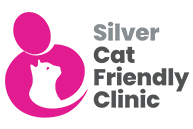What is Canine Herpes?
Dog herpes virus is a common virus and it is thought that as many as 80% of dogs will have been exposed to it in their lives. Like all herpesviruses dogs are infected for life once exposed. It hides in nerve cells and reactivates at times of stress. This disease is most serious in young puppies less than one month old and sadly most infected puppies will fade and die. Infections in pregnant dogs can cause stillbirths, infertility and miscarriage, this is why a vaccine is usually advised for breeding dogs. Older dogs can also get eye and respiratory symptoms, but this is rare.
Canine Herpes FAQs
Can dogs get herpes?
Yes, dogs can get the canine form of the herpes virus known as canine herpes (CHV-1).
Can you catch herpes from a dog?
No, dogs cannot transmit herpes to humans. The human strains are HSV-1 and HSV-2 and these viruses are only able to live and reproduce in humans, the canine form is CHV-1 which can also live and reproduce in dogs.
Can dogs give humans herpes?
No, the canine herpes virus can only live and reproduce in dogs.
Can cats get herpes?
Yes, cats can contract herpes but only the feline variant, this can be also referred to as feline viral rhinotracheitis (FVR). Thankfully, excellent vaccination programmes provide cats with cover and this is also included as part of our Pet Health for Life Plan for Cats. You can spread the cost and save by paying monthly. Click here to find out more about our Pet Health for Life Plan for Cats.
Can cats give humans herpes?
No, cats cannot transmit herpes to humans. The herpes virus is species specific in all dog, cat or human variants.
Is feline herpes contagious?
Yes, feline herpes is highly contagious to other cats but can be prevented with vaccination protection.
What are feline herpes symptoms?
Symptoms of feline herpes include:
- sneezing
- eye discharge
- ulcers in the eye (cornea)
- nasal discharge
- weepy eyes
- nasal congestion
- conjunctivitis (inflammation of the tissues that line the eyelids)
- squinting or difficulty opened the eyes
- fever
- lethargy
- reduced appetite
- enlargement of the lymph nodes.
Cats can be protected from feline herpes by a simple vaccination programme, which is also included as part of our pet health for life plan. You can spread the cost and save by paying monthly. Click here to find out more about our pet health for life plan.




